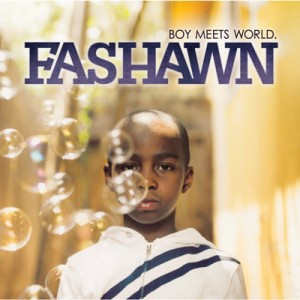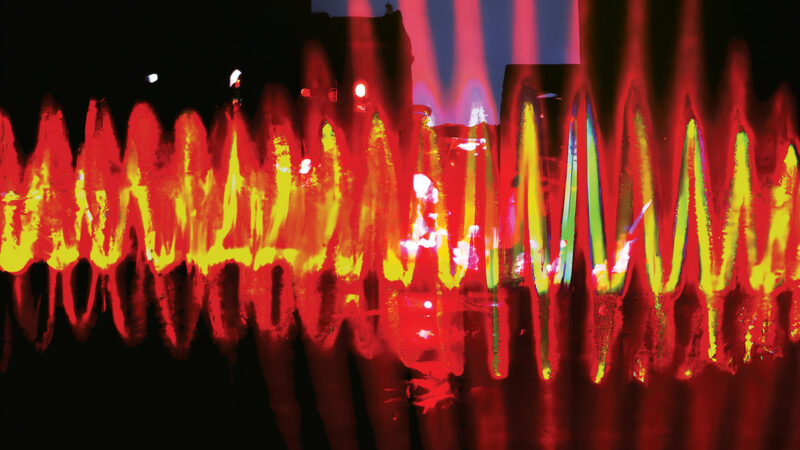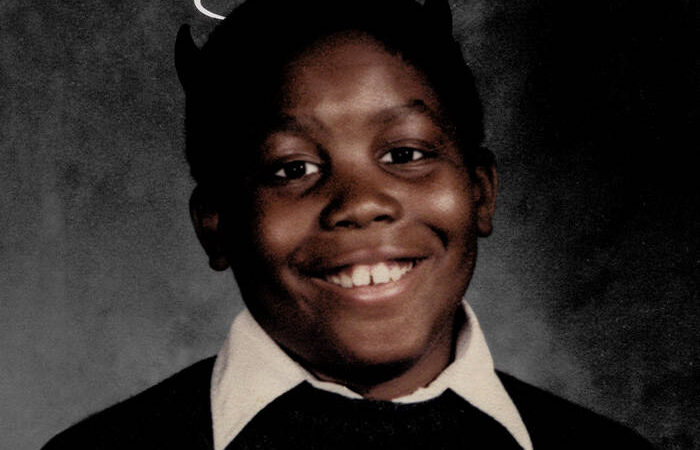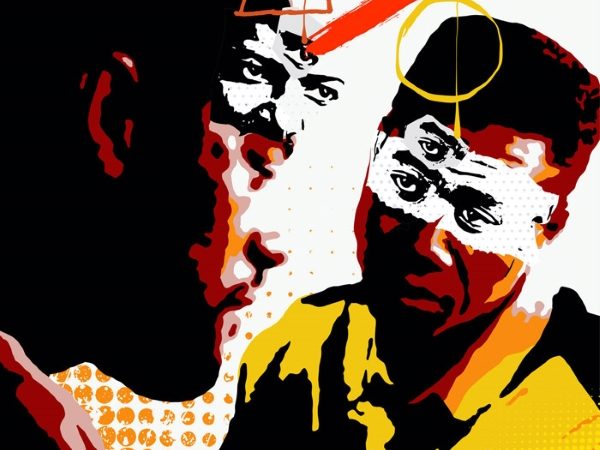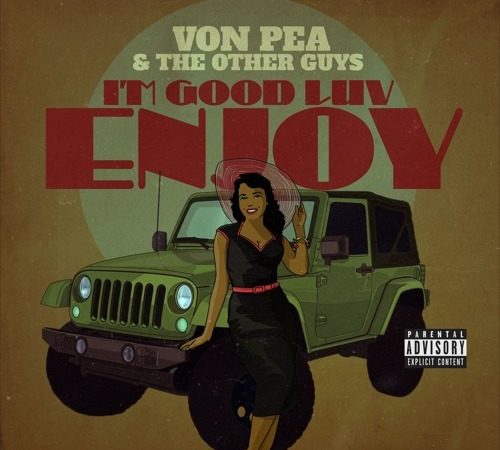You don’t often get the opportunity to introduce something to people, and when you do, it’s often done with caution. You never want to be the name attached to unearned hype. When talent manifests, it is necessary for both continuance of our culture and the building of our own professional integrity that we stamp it and prepare our readers for its consumption. With that in mind, we bring you the debut of Cali’s own Fashawn, Boy Meets World.
The album is a journey through one man’s discovery of life, and Fashawn’s lessons are placed front and center with a refreshing frankness. Riding shotgun is producer Exile, who establishes a unique soundscape. This album isn’t as much produced as it is scored and that approach widens the lens.
Boy Meets World opens with a soulful 70s intro and themes of the start of a new day. It then explodes into a bass heavy fury as Fashawn gives his words to the world. The hook is a flurry of scratched-in bits and pieces culminating with a formal declaration that this is indeed his album.
“Freedom” begins as a freestyle type song but somewhere in the middle he gets a bit conscious and starts expounding alliteratively on themes of politics, society, the mind, and progress. It’s a change of pace that keeps the listener off balance, as if the first half was just to get the attention of someone who wasn’t conducive to hearing that kind of message. From there, Exile’s feathery production takes center stage with “Hey Young World.” The song is exquisitely arranged and drives uplifting spirit of the track. The smoothly-crooned chorus is buttery soft in execution and melts all over the beat. Alloe Blacc drops a cool verse as horns are brought in for the song’s highlight: a semi spoken word verse from Devoya Mayo. Brilliant.
From there the album directly segues into “Stars.” A plunking bass adds a nightclub feel that provides Fashawn the chance to talk about doing shows and performing while honing his craft and believing in himself. During this segment of the album, the scoring approach of Exile’s production shapes the experience while Fashawn delivers the scenes.
While the first phase of the album deals with his development and manifestation as an artist, the next part deals with his growth and development as a man. Beginning with the song “Life as a Shorty,” Fashawn opens up to what made him the man he is. He speaks of the lack of his birth father early in life, and the presence of his mother’s many suitors and his attachment to them. He speaks to the difficulties he had growing up, not as a source for pity or sympathy but as the difficult journey we all face as people.
On “Ecology” Fashawn leaves behind themes of growth for ones of survival, chronicling how environment and situation can alter direction and aspiration in life, particularly in South Central Los Angeles. This is reinforced on the track “Our Way.” “I’m from the sunshine state but we living in darkness, be smart n***a, enter with caution.” ‘Nuff said.
Fashawn addresses his role in self-actualization on “Why,” bolstered by soft strings and a Curtis Mayfield-ish sample. With refreshing courage he addresses God of all things with the track “Father.” To a dithering piano that filters from left to right in your speakers, Fashawn ponders the state of man and why people carry the things in their hearts and minds that they do. It’s not a cry for salvation or anything enormous, but that’s the beauty of it.
From here, the album gets off course on its journey with Mistah Fab collaboration “Sunny CA.” and the acrobatic Exile featured “Bo Jackson.” Dope songs, but when viewed in the context of this album’s journey to that point, they are diversionary and detract from the album’s singular momentum. They would have been better served appearing on another album or a side project. They don’t add to what makes this album different. “Lupita,” a passing-me-by type song is misplaced. Had it been placed during the growth part of the album it would have been more relevant. “When She Calls” follows “Lupita” perfectly but again they are mal arranged.
The highlight of the album is the positively brilliant title track “Boy Meets World.” It is a ten minute opus that is the summation of Fashawn’s entire “doctoral thesis.” It is informative, revealing the course of his life in the first four minutes in a fashion that sets up the balance of the song bridged by a lullaby piano. Fashawn then drops a half sung melodic flow that ratchets up the emotion and gravity with help from exiles strings. Think “Libertad” from Aquemini in tenor. It’s not rap in composition but it is sharp in delivery and potent in emotional quotient. The remainder of the album functions as a pressure valve to release the pent up emotion built by this song. Noteworthy is the very dope “The Score” which is demolished by Planet Asia.
In all, this is a very good borderline great album, certainly aided by the artist’s appearance from nowhere. It is strong lyrically, mature in theme, and wonderfully produced. Exile carved out an extremely appropriate place for Fashawn to work, and Fashawn takes both his craft and his audience seriously. If there are flaws to the album, it is the length and the placement of a few songs that disrupt what is overall a very tight narrative. Do yourselves a favor. Take two hours turn your lights off, and take this journey with Fashawn. You won’t regret it.



 out of 5
out of 5
Follow Odeisel on Twitter @ http://twitter.com/odeisel
Follow Us on Twitter @ http://twitter.com/planetill
Join Us on the Planet Ill Facebook Group for more discussion

